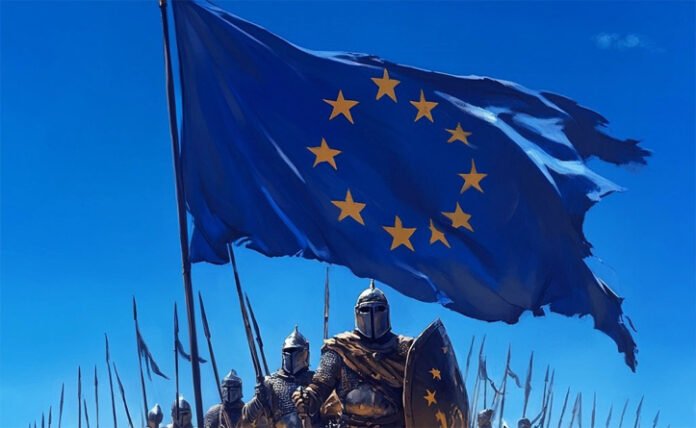The European Union (EU) has officially endorsed a defence-readiness plan aimed at ensuring the continent can defend itself against external military threats by 2030. The decision comes amid growing concerns over Russia’s probing of EU defences and increasing geopolitical uncertainty in Europe.
The EU’s plan represents a significant step toward strengthening collective security among member states. By 2030, the bloc aims to have a fully operational, coordinated defence capability capable of responding swiftly and effectively to external aggression.
“Europe must be able to defend itself. This plan reflects our commitment to ensuring security and stability in the face of emerging threats,” said a senior EU defence official.
Key Objectives of the EU Defence-Readiness Plan
The defence strategy outlines multiple core objectives designed to enhance Europe’s military resilience:
Rapid Response Forces – Establishing highly trained, quickly deployable units capable of responding to crises anywhere in Europe or at its borders.
Enhanced Military Coordination – Improving collaboration between EU member states’ armed forces, intelligence agencies, and defence logistics networks.
Technological Modernization – Investing in advanced weapons systems, cyber defence infrastructure, and intelligence-gathering technologies to counter modern threats.
Joint Exercises and Training – Conducting regular pan-European military exercises to ensure interoperability and readiness.
Strategic Deterrence – Maintaining a credible deterrent to prevent potential aggressors from testing European defences.
Analysts highlight that the EU’s plan is both a reactive and proactive measure, intended to address existing vulnerabilities while preparing for future geopolitical challenges. The ongoing conflict in Eastern Europe and Russia’s recent military manoeuvres have underscored the importance of a unified European defence posture.
Context: Rising Tensions with Russia
The EU’s renewed focus on defence readiness is closely linked to Russia’s military behaviour, which has included border incursions, probing exercises, and advanced weapon deployments near European territories. While the EU has previously relied on NATO as a primary security guarantor, the new plan signals a desire for strategic autonomy and self-reliance in European defence matters.
“Europe cannot rely solely on external alliances. We must be able to protect ourselves, and this plan is a blueprint for achieving that goal,” said a European security analyst.
Implications for EU Member States
For individual EU nations, the defence-readiness plan carries several significant implications:
Budgetary Adjustments – Member states may need to increase defence spending to meet collective readiness targets.
Enhanced Military Cooperation – Countries will need to coordinate more closely on logistics, intelligence sharing, and operational planning.
Innovation and Technology – Increased investment in defence technologies, including drones, AI-assisted surveillance, and cyber capabilities.
Recruitment and Training – Expanding military personnel and specialized units to ensure rapid deployment capabilities.
By adopting a holistic and long-term approach, the EU aims to create a credible deterrent against any potential aggressor, while also reassuring citizens of their security.
Global and Regional Significance
The plan sends a strong message internationally, highlighting Europe’s resolve to maintain sovereignty and security in an increasingly unpredictable world. Beyond Russia, the strategy addresses potential threats from global actors who may seek to exploit divisions among EU members or target European interests abroad.
“This is Europe taking its destiny into its own hands. By 2030, the continent will be better prepared to defend itself and contribute to global peace and security,” said a NATO advisor familiar with EU defence policies.
Conclusion
The European Union’s endorsement of a defence-readiness plan for 2030 marks a historic step in ensuring continental security and strategic independence. Against the backdrop of Russian military activity and a volatile global environment, this initiative underscores the EU’s commitment to protecting its citizens, borders, and interests.
As Europe advances toward 2030, the effectiveness of this strategy will depend on member-state cooperation, investment in technology, and sustained political commitment—elements that will determine whether the EU can truly stand ready against future external threats.
















